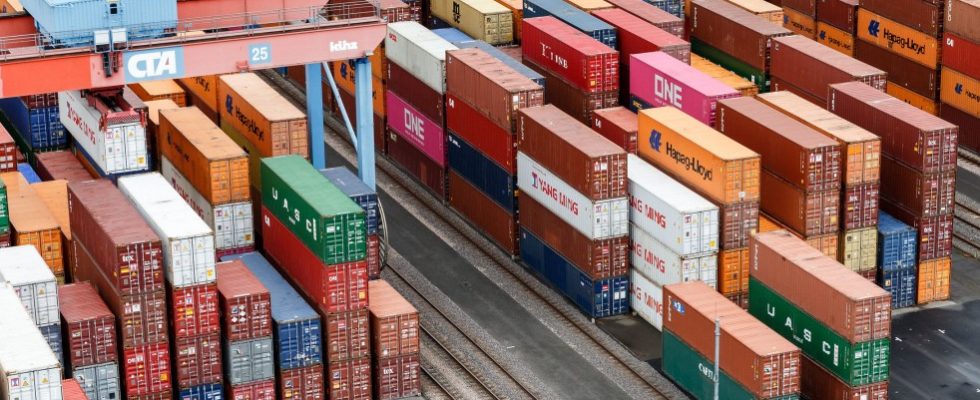The German economy is in a difficult situation. In 2024, all indicators point to this, there will be at best mini-growth in the zero-point range – if at all. Economics Minister Robert Habeck (Greens) tried to highlight the little good in the bad on Caren Miosga’s talk show on Sunday evening. Now, on Monday morning, there is another piece of not-so-pleasant news, distributed by the Federal Statistical Office and from the Paris-based Organization for Economic Cooperation and Development, or OECD.
According to the report, Germany is likely to grow significantly weaker this year than the other industrialized countries OECD. On Monday it halved its growth forecast from an already weak 0.6 to 0.3 percent.
All other large euro countries The experts believe there will be greater growth: 0.6 percent is forecast for France, 0.7 percent for Italy and 1.5 percent for Spain. Non-EU industrial nations such as the USA (2.6 percent) or Great Britain (0.7 percent) are also likely to do better, according to the OECD. Argentina, which is in a constant state of crisis, is expected to perform worse than Germany; a decline of 2.3 percent is expected here. The prospects for that Growth in Germany are also for 2025 not fundamentally better. Here too, the OECD lowered its forecast from 1.2 to 1.1 percent.
What is the reason for the weak growth in Germany? “This is primarily because the energy-intensive industry has a greater weight in the German economy than in other countries in the euro zone,” says OECD expert Isabell Koske. The Dependence on Russian energy imports was larger in Germany than in France, for example. After the Russian invasion of Ukraine, this led to a greater increase in the price of energy in Germany. This still affects production in energy-intensive industries.
Exports fall sharply after a very weak December
Habeck also cited the external shocks – war, energy crisis, inflation – as reasons for the economic difficulties on ARD. But there are also homegrown problems. “The budget crisis has increased uncertainty for companies and households,” said OECD expert Koske. The Federal government austerity measures led to a decline in investments in the fourth quarter of 2023 and held back private consumption despite increased real wages.
And the OECD figures are not the only bad news – the Federal Statistical Office reported early this morning that the Exports have declined. As a reminder: Hardly any industrial country is as dependent on exports as Germany. The minus for 2023 is 1.4 percent. In absolute figures, German companies sold goods and services abroad worth 1,562.1 billion euros.
The reason why exports have fallen so sharply is mainly due to a very weak December. That month saw a drop of 4.6 percent compared to the previous month. The biggest decline in a year. Economists surveyed by the Reuters news agency had only expected a decline of 2.0 percent, after a strong increase of 3.5 percent in November.
Also the value of the Imports fell in 2023, also particularly clearly in December. The decline of 9.7 percent is even significantly greater than that of exports. The value of imports last year was 1,352.5 billion euros. So Germany still has one Export surplus, it is almost 210 billion euros. Where are German exports going? The majority – around 67.5 billion euros – goes to the EU member states. However, there will be a decline of 5.5 percent for 2023.
“Exporters need new impulses”
The most important trading partners as an individual country are USA. The value of exports there will be 12.7 billion euros in 2023, which is 5.5 percent less than the year before. The China-Business even shrank by 7.9 percent to 7.5 billion euros, exports to the United Kingdom fell by 4.3 percent to 7.4 billion euros.
So 2023 was a bad year for German foreign trade. And there is little hope that 2024 will be any better. The expectations of the German export industry fell again in January. The corresponding barometer fell to minus 8.4 points, the lowest level since September 2023.
“Exporters need new impulses,” says Klaus Wohlrabe, head of the survey department at the Munich Ifo Institute. The weakening global economy is depressing sentiment – and the interest rates raised by central banks in almost all economic areas are having a negative impact. Because they make investments in machines, industrial plants and cars more expensive – all things that the former world export champion Germany always sold in large numbers.

